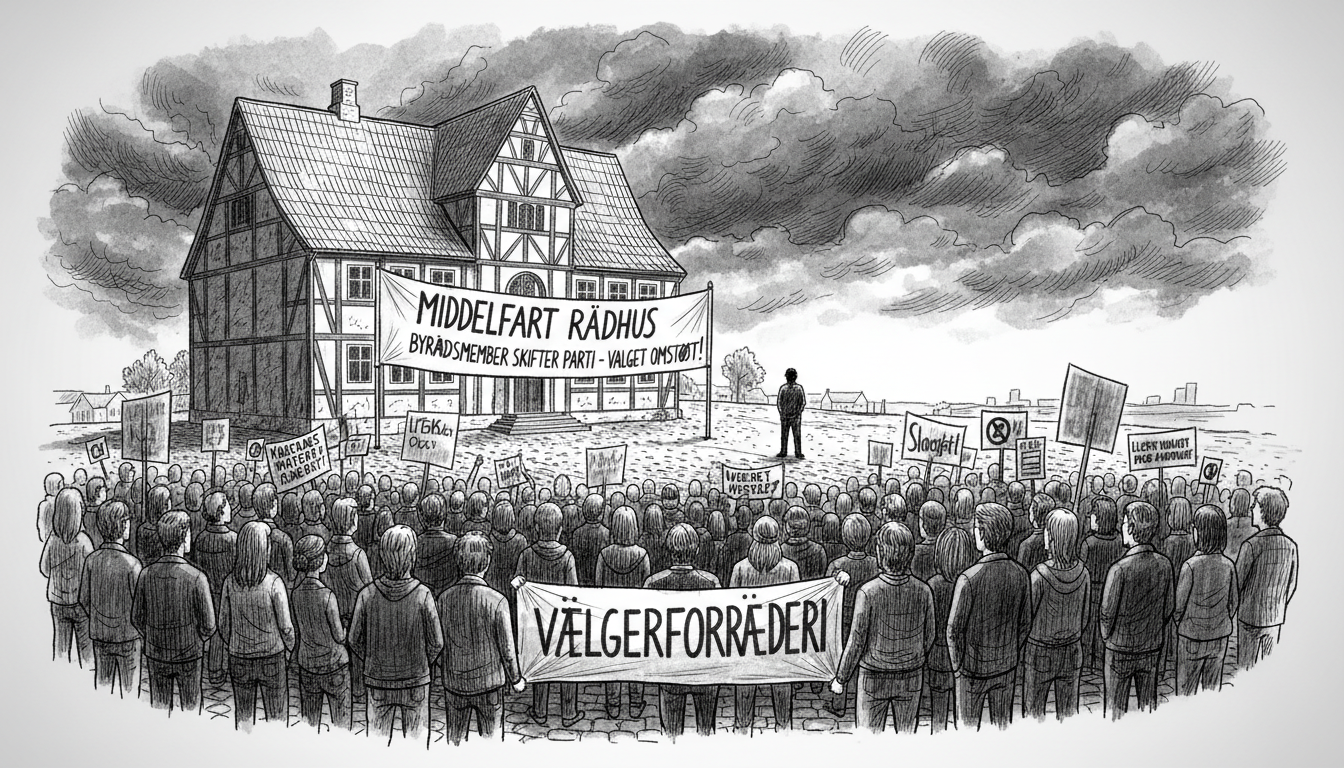An unprecedented party switch in Middelfart has tipped the political balance and turned the mayoral election upside down. The move brought angry citizens to the streets, with many feeling disrespected and deceived by their elected representative.
Approximately 150 residents from the island of Funen gathered outside Middelfart City Hall on a cold November afternoon. They stood between Christmas decorations and election posters holding signs with messages like 'Stop the vote thief' and 'The election's biggest voter fraud.' These demonstrators defied the biting cold because they felt completely betrayed by 60-year-old council politician Ulla Sørensen.
Danish local politics operates on a system of proportional representation where council members are elected based on party lists. When elected officials switch parties between elections, they effectively change the mandate voters gave them. This practice, while legal, often creates significant controversy and public backlash.
Party switching in Nordic politics carries particular weight because these countries have strong traditions of party loyalty and clear ideological divisions. Voters typically choose parties based on specific platforms and values. When politicians change allegiance, it disrupts the political balance that voters established at the ballot box.
The Middelfart situation highlights a recurring tension in democratic systems worldwide. Voters elect representatives based on party affiliations and platforms, but those representatives retain the legal right to change their political allegiance during their term. This creates a fundamental question about whether politicians serve the voters who elected them or their own evolving political conscience.
Local government in Denmark holds substantial power over municipal services, including schools, elderly care, and local infrastructure. The composition of the city council directly determines who becomes mayor and which policies get implemented. A single party switch can therefore completely alter the political direction of an entire municipality.
What makes this case particularly noteworthy is the scale of public reaction. Gathering 150 demonstrators in a municipality of approximately 15,000 residents represents significant public engagement. The emotional language used by protesters suggests they view the party switch not just as political maneuvering but as a fundamental breach of trust.
The timing adds another layer of complexity. The demonstration occurred during the holiday season, traditionally a time of political quiet in Denmark. That citizens would brave cold weather during what's normally a family-oriented period underscores the depth of their frustration.
This incident raises important questions about political accountability in local government. Should elected officials be bound by their campaign promises and party affiliations? Or do they have the right to follow their political evolution, even if it means disappointing those who voted for them?
The aftermath will likely influence how other Danish municipalities handle similar situations. It may also prompt discussions about potential reforms to the system, though changing the rules around party switching would require careful consideration of both democratic principles and practical governance.

